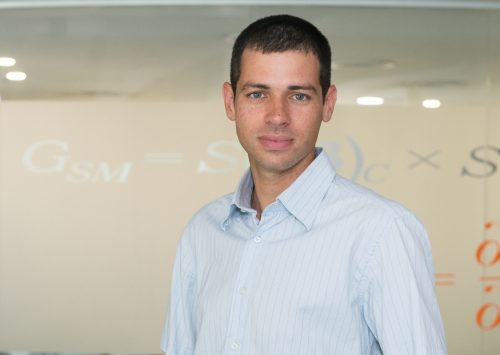So far, over four million NIS have been awarded as part of the prize distributed by the Wolf Foundation

Next month, the Wolff Foundation will award the Krill Prizes to outstanding Israeli researchers who have not yet received tenure at Israeli universities. Among the winners of this year's prize are a researcher who invented an innovative imaging method that makes it possible to avoid an invasive biopsy, a researcher who fights the malaria parasite, a stem cell researcher who is expected to develop new therapeutic approaches to cancer, a researcher who managed to extend the life of electric vehicle batteries and medical batteries. The CEO of the Wolf Foundation, Reut Yanon Berman: "We have something to be proud of, and yet, I hope that a day will come when the political parties will also see who gives weight and an agenda to science and academia."
The Wolf Foundation published this week the list of ten winners of the prestigious Creel Prize for 2019. The prize, worth $10,000 each, is awarded annually in the fields of exact sciences, life sciences, medicine, agriculture and engineering. The awards are intended for the most outstanding academic faculty members from universities in Israel who have not yet received tenure. The winners are selected by the foundation's scholarship committee from a list of dozens of outstanding candidates submitted by the universities.
Among the winners for 2019: Dr. Uri Katz from the Hebrew University in Jerusalem who is involved in the development of innovative imaging and sensing methods that make it possible to look deep into tissues and thus avoid the need to perform an invasive and dangerous biopsy. Even the researcher Dr. Amnon Bar Shir from the Weizmann Institute of Science deals in the field of imaging and develops biosensors that give the MRI method the innovation of imaging in "colors", which make it possible to map complex intracellular processes in the living body without the need for invasive intervention and to diagnose diseases earlier and better assessments of Treatment effectiveness.
Prof. Mishna Yaron Fox from the Technion: researches stem cells responsible for the regeneration of various tissues such as the skin and intestine. In his laboratory, Yaron is working on cracking the mechanism in which stem cells undergo planned suicide and found that this process is of great importance in returning body tissues to the state they were in before they were damaged, recovery and the creation of cancer. Yaron's research is expected to develop new therapeutic approaches for regenerative medicine and cancer treatment.
Dr. Noked Malachi from Bar-Ilan University: works to extend the life of batteries by preventing the processes of erosion and destruction of materials. The coatings that Nokad and his team manage to produce are deposited on top of the active material, atom by atom, and make it possible to extend the lifespan of batteries. In the case of an electric vehicle, the length of the trip can be extended, and in the case of medical batteries, the number of surgeries required to replace an implanted device due to battery failure can be significantly reduced.
Dr. Neta Regev-Rotsky from the Weizmann Institute of Science: researches the issue of intercellular communication in order to fight the malaria parasite. Every day around a thousand children die worldwide due to infection with the malaria parasite, and an effective vaccine for the disease has not yet been developed. In her research, Neta discovered that the parasites hidden deep inside the human blood cells are able to "talk" to each other, and send substances from cell to cell. Neta found that the parasites communicate through "small packages" that they send out and transfer between cells to coordinate actions with the other invading "friends" and also to confuse the immune system and "distract it".
Dr. Baruch Barzel from Bar-Ilan University: won an award for his research on the language of networks. The Internet infrastructure, the social system and the genetic mechanisms - all are represented by complex networks, where humans, computers, genes, or animals are linked to each other and influence each other. Barzel aims to understand the structure of the networks, predict their behavior, and steer them toward optimal functioning: utilize the aviation network to predict the spread of a global epidemic, design the infrastructure networks so that they are resistant to faults and failures, and map genetic relationships to reveal the cellular mechanisms.
Other winners include Ofer Furstenberg from the Weizmann Institute, Dafna Shaf from the Hebrew University of Jerusalem, Shahar Kotinsky from the Technion and Noga Ron Zvi from the University of Haifa.
CEO of the Wolf Foundation, Reut Yanon Berman: "Just before the Knesset elections, we see once again the importance of investing in research in Israeli academia and the potential inherent in researchers in Israeli academic institutions. We have something to be proud of, and yet, I hope that a day will come when, among the parties, we will also see who gives weight and an agenda to science and academia."
